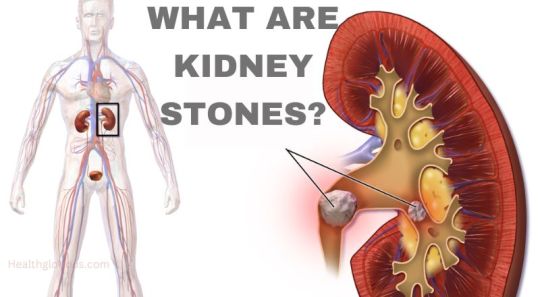#urinary tract
Text
Health: Adrenal Glands
TCM: Jing, Kidneys
GNM: Off Track (cortex), Unbearable Stress (medulla)
Greek: Sanguine (cortex), Choleric (medulla)
Chakra: Root
Astrology: Mars, Aries-Libra; ex. managing adrenal health can be especially important for natal placements like Mars in Libra/7th, Mars in Pisces/12th, South Node conjunct Mars, etc.

The adrenal glands, which sit atop the kidneys, play a central role in the body's response to stress, fatigue, immune challenges, and several key physiological and metabolic functions. Issues related to the adrenal glands is very common yet highly under-diagnosed. They consist of two regions:
Adrenal Cortex: Derived from the mesodermal base substance cholesterol, the adrenal cortex produces hormones such as cortisol, corticosterone, aldosterone, and male sex hormones. These hormones play vital roles in physiological functions. Cortisol and corticosterone, known as stress hormones, contribute to the regulation of metabolism, inflammation, and blood sugar, and assist in long-term stress response by enriching the blood with minerals and glucose. Their anabolic effects also aid in healing and regeneration. Aldosterone helps maintain blood pressure by regulating the balance of salt and water in the body. The adrenal cortex's production of male sex hormones can influence the reproductive system. If unresolved, chronic stress may lead to excessive cortisol production, causing problems like weight gain and high blood sugar.
Adrenal Medulla: The endodermal adrenal medulla manages emotional and physical stress by producing the hormones noradrenaline, dopamine, and adrenaline. These hormones are pivotal in activating the "fight, fright, flight" response, a physiological reaction that occurs in response to a perceived harmful event or threat. This acute stress response increases heart rate, blood sugar, and mental alertness, along with other physiological changes. Chronic anger or emotional upheaval can strain the adrenal medulla, leading to an energetic drain.
Stress
The adrenal glands are highly sensitive to stress, and chronic stress can lead to various disorders:
Psychiatric Disorders: Neuroses, post-traumatic stress disorder (PTSD), depression, anxiety disorders, bipolar disorder.
Neurological Disorders: Migraines, peripheral neuropathy, dizziness, tremors.
Glandular Disorders: Issues related to other glands including the thyroid which is responsible for cell growth; for instance, uterine cancer, polyps, hypothyroidism, hyperthyroidism.
Cardiovascular Disorders: Coronary artery disease, stroke, heart attack, hypertension, arrhythmias.
Respiratory Disorders: Asthma, chronic obstructive pulmonary disease (COPD), difficulty in breathing.
Immunological Disorders: Possible tumor promotion, reduced resistance to infection, autoimmune disorders, chronic inflammation.
Metabolic Disorders: Diabetes, obesity, metabolic syndrome, difficulty in regulating blood sugar.
Gastrointestinal Disorders: Ulcers, irritable bowel syndrome (IBS), chronic indigestion, malabsorption.
Genitourinary Disorders: Impotence, incontinence, menstrual problems, urinary tract infections, kidney dysfunction.
Musculoskeletal Disorders: Muscle weakness, chronic fatigue, fibromyalgia, joint pain.
Skin Disorders: Acne, eczema, psoriasis, skin thinning.
Cysts and Cancer
Adrenal Weakness: If the adrenal glands don't produce enough adrenaline, the heart may pump slower, leading to fluid accumulation and cysts in the prostate, ovaries, and breasts. These cysts can harden and potentially lead to cancer.
Blood Flow: Increasing blood flow can help resolve cysts if addressed quickly.
Signs of Imbalance
Frequent sickness, fatigue, low libido, low backache, chronic health issues, dark circles under the eyes, hair loss, early greying, frequent urination at night, cold hands and feet, brain fog, pain and weakness in the lower back, loins, thighs, knees and lower body, urinary weakness and debility, polyuria and nocturia, impotence and male sexual dysfunction, moodiness and irritability, depression, muscle or bone loss, autoimmune conditions, chronic fatigue, hormone imbalance, body aches, unexplained weight loss, lightheadedness, skin discoloration (hyperpigmentation), weakened stress response, insulin resistance, sleep problems, weight gain, sweet and salty food cravings, difficulty getting up in the morning, increased PMS or menopausal symptoms, inability to handle stress, increased allergies, frequent sighing, cravings for salty foods, higher energy levels in the evenings, overuse of stimulants like caffeine.
Traditional Chinese Medicine (TCM)
Jing (essence): The statement by the Chinese that the kidneys harbor our Jing refers to the adrenals having the highest concentration of neural crest cell derivatives in the entire body. Strong Jing corresponds to robust characteristics like strong teeth, which are made by neural crest cells, while weak Jing relates to signs of aging like grey hair and deafness, also linked to neural crest cells. Jing's manifestations include the progression from youth to adulthood, reflected in functions controlled by the pituitary (aided by neural crest cells), and can be seen in the structure of the face and jaw. Neural crest cells also create the heart's connective tissue, affecting lifespan. Jing as a concept is not the same as neural crest cells but they represent the body's inherent organizational strength. Weak organizational energy leads to neural crest cells that don't form properly or function well, resulting in genetic disorders affecting facial development. The Chinese recognized these markers as indicators of weak Jing.
Kidneys & Urinary Tract: The adrenal glands are connected to the kidneys not just through the renal fascia, but also by way of the renal artery, draining into the renal vein, and receiving nerve connections from the renal plexus. The kidneys regulates the body's water content and are essential for maintaining healthy bones, as well as producing healthy bone marrow and blood. It determines the level of adrenaline and dopamine in the body, affecting our energy and rest. In addition, it forms a relationship with the heart through various hormones. During puberty, the adrenal cortex starts to produce sex hormones like testosterone and oestrogen, and this production continues throughout adulthood. Caffeine depletes kidney qi, yang, yin, and essence, contributing to liver and adrenal issues, and long-term exhaustion. Regular coffee drinkers, especially those who don’t feel its effects, may be nearing adrenal exhaustion. Adrenal fatigue is often considered a kidney yang deficiency. If left untreated, it can progress to a kidney yin deficiency. These deficiencies are often marked by a light low groaning tone to the voice, a darkish pallor under the eyes, negative attitudes of insufficiency or inadequacy, needing to sit and not being able to stand for long, and worrying about money. Additionally, those who experience traumatic shock or long term stress often have their hair turn gray or fall out.
Kidney Yang (medulla): Linked to the reactive sympathetic nervous system and the hormones adrenaline, dopamine, and norepinephrine, produced in the adrenals. A deficiency in kidney yang can lead to symptoms like cold hands and feet, edema, night urination, and low libido. This deficiency parallels disorders like adrenal fatigue, hypothyroidism, and sexual dysfunction. This condition is worsened by the use of marijuana, diminishing our natural drive, motivation, and willpower. Adrenaline is used to treat conditions like asthma, anaphylaxis, and slow heart rates. It works on the cell membrane's outside, which is known as the yang aspect of the cell. It never enters the cell but attaches to a receptor on the outside, initiating a cascade of chemicals that open or close gates on the cell's exterior. In the heart and muscles, adrenaline prompts more calcium to enter, which amplifies the force of contraction; in the lungs, it leads to the relaxation of the muscles, permitting more air to flow in; in the brain, it initiates the emotional reactions connected with fear.
Kidney Yin (cortex): Associated with the parasympathetic nervous system and the hormone cortisol, produced in the adrenals. A kidney yin deficiency may manifest as sore back, leg weakness, insomnia, and anxiety. It may parallel disorders like diabetes, high blood pressure, and hyperthyroidism. Although necessary for daily function and stress response, excessive cortisol can lead to fluid retention, osteoporosis, muscle wasting, depression, and diabetes. If our bodies stopped producing cortisol, it would result in significant illness. While adrenaline binds to the exterior of the cell (yang), cortisol is absorbed into the very core (yin). Contrary to the effects of adrenaline which are more immediate, the effects of cortisol can take years.
Greek Medicine
Hot Temperament: The adrenals are generally represented as stimulating and energizing various functions to adapt to stress.
Adrenal Cortex: Sanguine, nutritive, and anabolic, enriching the blood and decreasing swelling.
Adrenal Medulla: Choleric, energetic, and catabolic, stimulating acute stress response.
Faculty Support: Adrenal glands produce supplementary amounts of sexual hormones, bridging a connection between vital and generative faculties; supporting heart and lungs (vital), kidneys and pancreas in blood sugar regulation (natural), enhancing mental alertness and stimulating the sympathetic nervous system functioning (psychic), supporting male sexual function and response (generative).
Root Center: The adrenals form the basic energetic support for the entire organism, associated with the Root Chakra.
Kidneys & Urinary Tract: Weak adrenals may adversely affect the vitality and functioning of the kidneys and urinary tract, which are interlinked with the adrenal glands'. When the kidneys are not effectively eliminating fluids, it can lead to the accumulation of phlegm and moisture. Additionally, the kidneys have a connection to the soles of the feet which may be affected by cold conditions. Conditions of melancholy or devitalization of the adrenals, kidneys, and urinary tract often correlate with chronic fatigue.
Adrenal Exhaustion: Chronic stress and irregular habits can lead to fatigue, irritability, pain, and impotence in men usually caused by flare-ups of Choleric anger or any experiences which feel like a roller coaster. Sexual overindulgence also exhaust the adrenals.
Male Sexual Function: The adrenal glands provide energetic support for male sexual function. Issues with adrenal energy may result in sexual dysfunction, including impotence or premature ejaculation.
Blood Sugar Regulation: In instances of dangerously low blood sugar, the adrenal glands jump into action, raising levels through adrenaline. Chronic instability may involve adrenocortical hormones, aggravating factors in type II diabetes.
German New Medicine (GNM)
Adrenal Cortex (Off Track)
Conflict: Feeling like you've made a wrong choice or gone down the wrong path.
Under-Functioning: Waterhouse-Friedrichsen syndrome, adrenal gland insufficiency, Addison's disease. Reduced cortisol production, feeling stressed and tired.
Over-Functioning: Excess cortisol (Cushing's disease) with high blood pressure, round face, obesity, muscle atrophy or aldosterone (Conn's syndrome) with high blood pressure, low potassium, weak muscles, thirst, frequent urination.
Adrenal Medulla (Unbearable Stress)
Conflict: Extreme tension from stress, feeling overwhelmed. Something is beyond reach.
Diagnosis: Pheochromocytoma, neuroblastoma. High blood pressure, racing heart, increased blood sugar, sweating.
Astrology
Mars: This planet governs adrenaline, testosterone, male sexual function, playing a role in the catabolic metabolism where fuel is burned. It also oversees the release of toxins, the regulation of red blood cells, iron, and muscle tissue, including tendons and ligaments. It extends to the entire muscular system, embodying vitality and physical strength. The energy of Mars is hot and dry so it's temperament is Choleric. Mars co-rules the adrenals (with Aries/Libra) and the male genitalia (Scorpio).
Aries: Aries is a Choleric sign, and its will to action makes it prone to anger and stress, which deplete and weaken the adrenal glands. The sign is energetic, sharp-eyed, cheerful, and alert, but may become irritable and have a restless tendency to keep going until burnout. This can lead to eyestrain and poor vision as the health of the eyes is dependent on the strength of the adrenals. The preference for stimulants like chili pepper, caffeine, and their attraction to the Sun can overstimulate the adrenal glands, leading them to seek cooling substances like icy drinks, fruits, and seafood.
Libra: Libra, the Sanguine Air sign that rules the kidneys and lower back, is a counterbalance to Aries. The kidneys and genitourinary tract are only as strong and healthy as the adrenal glands, which are their energetic support. Underlying adrenal weakness and exhaustion weakens the kidneys and genitourinary system, leading to urinary debility, urinary tract infections, inflammation or irritation, uremia, and gout. Since male sexual function is also dependent on the strength and health of the adrenal glands, problems may arise in this area.
Aries-Libra Dynamic: Kidneys, adrenals, eyes, head and cranium, low back, lumbar spine, bladder, genitourinary system (especially male), hips and loins. Aries represents personal power, autonomy, honesty, and decisiveness, often leaning towards individualism and assertiveness. Libra, on the other hand, emphasizes cooperation, diplomacy, compromise, and social harmony. While Aries is direct and often acts alone, Libra seeks mutual choice and operates through consensus. This represents a struggle between competition and cooperation, selfhood and partnership, war and peace, doing and being. Finding balance is needed for acid/alkaline balance, as Aries tends to run acidic, and for hormonal balance, where Aries tends toward excess testosterone. The tension between these two forces may cause a lot of frustration and aggravation, particularly in males, manifesting as irritation or inflammation of the genitourinary tract.
Healing and Relief
Diet: Paleo; reduce caffeine, sugars and sweeteners, gluten, starch, white flour, processed foods, and hydrogenated oils.
Nutritional Supplements: Ionic Magnesium, B Vitamins, Omega-3 Fatty Acids, Vitamin C, Zinc, Probiotics, L-Theanine
Herbal Adaptogens: Ashwagandha, Rhodiola Rosea, Holy Basil, Licorice Root, Siberian Ginseng, He Shou Wu
Lifestyle Considerations: Address societal pressure to perform, lack of self-care, and the conflict in real life. Regular exercise of varied intensity. Practice meditation, mindfulness, Tai Chi, Qigong. Express creatively and spend time in nature. Align sleep schedule with circadian rhythm to nourish yin. Hydrate more and add salt to water. Avoid various toxins like dioxin or insecticides which contribute to adrenal malfunction. Spend more time in the sun each day. Don't sit for too long. Try wearing a haramaki, stretch cotton (for summer) or stretch wool (for winter).
These are research notes from the work of Daniel Keown, Michel Odoul, Michael Tierra, Lesley Tierra, Johan Boshwinkel, David Osborn, Judith Hill, Eileen Nauman, Björn Eybl, Caroline Markolin, Deb Shapiro, and Jody Smith.
#adrenaline#kidneys#urinary tract#adrenal glands#adrenal fatigue#somatic#medicine#mind body connection#naturopathy#astrology#holistic#chakras#gnm#tcm#chinese medicine#healing#aries#libra#psychosomatic#health
43 notes
·
View notes
Text
Dr. Mahendra Kumar Sharma: Leading Urinary tract specialist in Greater Noida
Searching for a Urinary tract specialist in Greater Noida? Dr. Mahendra Kumar Sharma provides expert care for urinary tract conditions with advanced diagnostic and treatment options. Trust Dr. Sharma for personalized and effective solutions to your urinary health needs. Book your appointment today!
for more information :- https://g.co/kgs/9oq1eCx
#Urinary tract specialist in Greater Noida#Urinary tract specialist#specialist in Greater Noida#tract specialist in Greater Noida#Urinary tract
0 notes
Text
Finding the Best Urologist in Punjab: Your Comprehensive Guide
When it comes to specialized healthcare, finding the right urologist is crucial for addressing conditions related to the urinary tract and male reproductive system. If you are in Punjab and seeking expert care, this guide will help you navigate your options and understand what to look for in a top-notch urologist in Punjab.
Understanding Urology
Urology is a branch of medicine that focuses on diagnosing and treating diseases of the urinary tract in both men and women, as well as the male reproductive system. Common conditions treated by urologists include urinary tract infections (UTIs), kidney stones, bladder problems, prostate issues, and male infertility. Finding an experienced urologist in Punjab is essential for effective treatment and management of these conditions.
Key Qualities of a Top Urologist in Punjab
1. Experience and Expertise
One of the most important factors to consider when looking for a urologist in Punjab is their level of experience and expertise. A urologist with several years of practice and a solid educational background can provide high-quality care. Look for specialists who have handled a wide range of urological conditions and have a track record of successful treatments.
2. Specialized Training
Urology is a diverse field, and some urologists may have additional training in specific areas such as pediatric urology, oncology (cancer), or reconstructive surgery. Depending on your needs, you might seek a urologist in Punjab who has specialized training relevant to your condition.
3. Advanced Diagnostic and Treatment Techniques
Modern urology relies heavily on advanced diagnostic tools and minimally invasive treatment options. When searching for a urologist in Punjab, inquire about the technologies and methods they use. Access to the latest equipment and techniques can significantly enhance the accuracy of diagnoses and the effectiveness of treatments.
4. Patient-Centered Care
A good urologist in Punjab will prioritize patient-centered care, ensuring that you feel comfortable and informed throughout your treatment journey. Look for a doctor who listens to your concerns, explains your condition and treatment options clearly, and involves you in decision-making.
5. Positive Reviews and Recommendations
Word of mouth and online reviews can provide valuable insights into the quality of care provided by a urologist in Punjab. Additionally, reading patient reviews can help you gauge the satisfaction levels of others who have received treatment from the same urologist.
Common Urological Conditions and Treatments
1. Kidney Stones
They can cause severe pain and may require treatment ranging from medication to surgery. A skilled urologist in Punjab can diagnose and treat kidney stones effectively, often using minimally invasive techniques.
2. Prostate Health
Prostate issues, including benign prostatic hyperplasia (BPH) and prostate cancer, are common among men as they age. A qualified urologist in Punjab can provide screening, diagnosis, and treatment options, including medication, surgery, or radiation therapy.
3. Urinary Tract Infections (UTIs)
UTIs are infections that affect the urinary system, including the bladder and urethra. They are more common in women but can occur in men as well. Treatment typically involves antibiotics, and a urologist in Punjab can help manage recurrent infections.
4. Incontinence
Urinary incontinence, or the loss of bladder control, can be a distressing condition. A urologist in Punjab can offer various treatment options, including lifestyle changes, medications, or surgical interventions to improve bladder control.
5. Male Infertility
Male infertility can result from various factors, including hormonal imbalances, structural problems, or sperm production issues. A specialized urologist in Punjab can conduct thorough evaluations and recommend treatments such as medication, surgery, or assisted reproductive technologies.
Preparing for Your Urology Appointment
When preparing for an appointment with a urologist in Punjab, it's helpful to gather relevant medical records, list your symptoms and concerns, and prepare any questions you may have. Being well-prepared can ensure a productive consultation and help your urologist develop an effective treatment plan.
Conclusion
Finding the right urologist in Punjab is essential for receiving high-quality care for urinary and male reproductive health issues. By considering factors such as experience, specialized training, advanced techniques, patient-centered care, and positive reviews, you can make an informed decision and choose a urologist who meets your needs. Whether you are dealing with kidney stones, prostate issues, UTIs, incontinence, or male infertility, a skilled urologist in Punjab can provide the expertise and support you need for optimal health.
0 notes
Text
Urinary tract infection o UTI [VIDEO, FILIPINO]
View On WordPress
#doctor#doctorrambles#filipino#Filipino doctor#health#medical#medical advice#medicine#patient information#urinary tract#urinary tract infection#uti
0 notes
Text
In this way, methenamine is used as a prodrug that enables delivery of formaldehyde specifically to the urinary tract. This method prevents the systemic release of formaldehyde to other organs of the body where it would be toxic.

"Chemistry" 2e - Blackman, A., Bottle, S., Schmid, S., Mocerino, M., Wille, U.
#book quotes#chemistry#nonfiction#textbook#methenamine#prodrug#medication#formaldehyde#urinary tract#toxicity
0 notes
Text
Kidney Stones Diagnosis, Treatment, Prevention, And Treatment
Kidney stones are one of the most common urinary tract disorders, affecting around 1 in 11 people. Although they can cause excruciating pain, kidney stones are usually harmless and can be treated easily. Kidney stones develop when certain chemicals build up in the urine and form crystals. These crystals can grow into large masses, known as stones. Stones can develop anywhere in the urinary tract, but most commonly occur in the kidneys or bladder.
0 notes
Text
What Are Kidney Stones?
Introduction
Kidney stones are a common health issue that affects millions of individuals worldwide, causing them to struggle. The kidneys develop hard mineral deposits, which can be extremely painful and uncomfortable. Dehydration, a diet high in sodium and sugar, and specific medical disorders, are a few of the causes of kidney stones, which can vary in size and composition.
The definition and…

View On WordPress
#calcium stones#Complications#cystine stones#Diagnosis#diet and lifestyle changes#Kidney Stones#natural remedies#Prevention#struvite stones#surgical procedures#Symptoms#Treatment#uric acid stones#urinary tract#urology
0 notes
Photo

“The Kidney and Urinary Tract Center is highly collaborative and passionate about research that advances knowledge about the kidneys and bladder. I study how cells respond to infection in states of health, obesity and diabetes.”
Laura Schwartz, Principal Investigator, The Kidney and Urinary Tract Center
#Laura#Schwartz#Kidney#Urinary Tract#KUTC#Passionate#Research#Diabetes#Health#Obesity#Principal Investigator
0 notes
Note
i think i have a uti. it burns when i pee but i wipe front to back, im not sick, i keep it clean, i dont shove dirty stuff in there and i dont wash inside with scented soaps. could they just spawn?
Depending on how your body works [especially if you don't have a penis], getting a UTI can be fairly easy. Certain foods, viruses or even having sex can increase your probability of getting a UTI but the reason for a UTI isn't always clear. And that's okay!
Unless you're getting frequent UTIs, especially seemingly without reason, which would definitely be a reason to get everything checked out.
Having a UTI is a reason to get checked out period [it's always best to get UTIs treated and make sure it's not something else/make sure everything OK!] but frequent UTIs can be a sign of other issues, so it's important to keep an eye out.
Hope this helps, Anon! Lemme know if you have any other questions. <3
40 notes
·
View notes
Photo








+ an extra

Apollo 13 (1995)
During the flight Fred Haise developed a urinary tract infection and later kidney infections. These caused him to be in pain for most of the trip
(This is my favorite movie and I have no idea if anyone’s made gifs of this scene but if they have, I couldn’t find them, so I just sighed and said: Fine, I’ll do it myself...)
#whump#hurt/comfort#whump gif#hurt/comfort gif#apollo 13#hug#comfort#warming up#freezing#cold#shivering#worried#hypothermia#not really but the tag will help people find what they like#not really hypothermia#urinary tract infection#uti#infection#sick#ill#fever#weak#this is one of the first whump scenes that made me go: oh...#This is what I like#Such a good movie#watch it!#this scene is somewhere towards the end#can't remember#astronauts#space
396 notes
·
View notes
Text


#My cat and my Mom both got UTIs that sent them rushing to the doctor on the same day 😔#psychically linked urinary tracts
22 notes
·
View notes
Text
not to put her on blast but Sabine is a pee girl who shoots her piss beam all over her litterbox like a broken nozzle
#kitty kamehameha one thousand times blasted from her urinary tract#im changing her litterbox configuration again to try to fix this finally permanently wish me luck
35 notes
·
View notes
Text


30.07.2023
Woke up at 5am and had a little walk before heading to my desk.
Must study for today:
- urinary tract infections.
- anemia .
#studyblr#med school#studying#medstudyblr#summer#motivation#med student#library#morning#exams#sunday#sunday morning#morning walk#medical students#uni student#medecine#anemia#urinary tract infection#review#revision#fresh air#motivateyourself#study tumblr#healthy habits
85 notes
·
View notes
Text



this is the entirety of undertale yellows story guys this is it thats all
#undertale#undertale yellow#rokos insanity spiral#undertale yellow dalv#deez.#deez what sir#i dont know why i added that LMAO#theyre vound me.#shitpost#art#is this even art#bigender dracula#i read undertale yellow shortened (UTY) as uti. urinary tract yinfection 💛
33 notes
·
View notes
Text

Biden’s alba - a great addition to any plant medicine tool belt! Not only are the flowers great for urinary antibiotic uses , but the leaves/stems make a great spinach replacement for a foraged diet. <3
#plant#plants#plantbased#plantblr#plant photography#plantcore#plant girl#plant growth#plant medicine#plant mom#natural medicine#natural photography#bidens alba#forage#foraging#foraged food#foragecore#foragers#wild plants#beautiful nature#nature photography#natural#nature#natural antibiotic#antibiotics#urinary tract infection#uti#holistic medicine#holistichealth#holisticwellness
10 notes
·
View notes
Text
Every female bodied person needs to read this
Every female bodied person needs to read this, and everyone should send the link to every female bodied person they know
23 notes
·
View notes